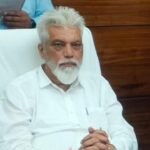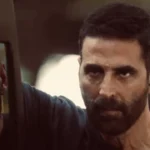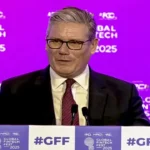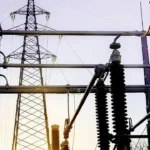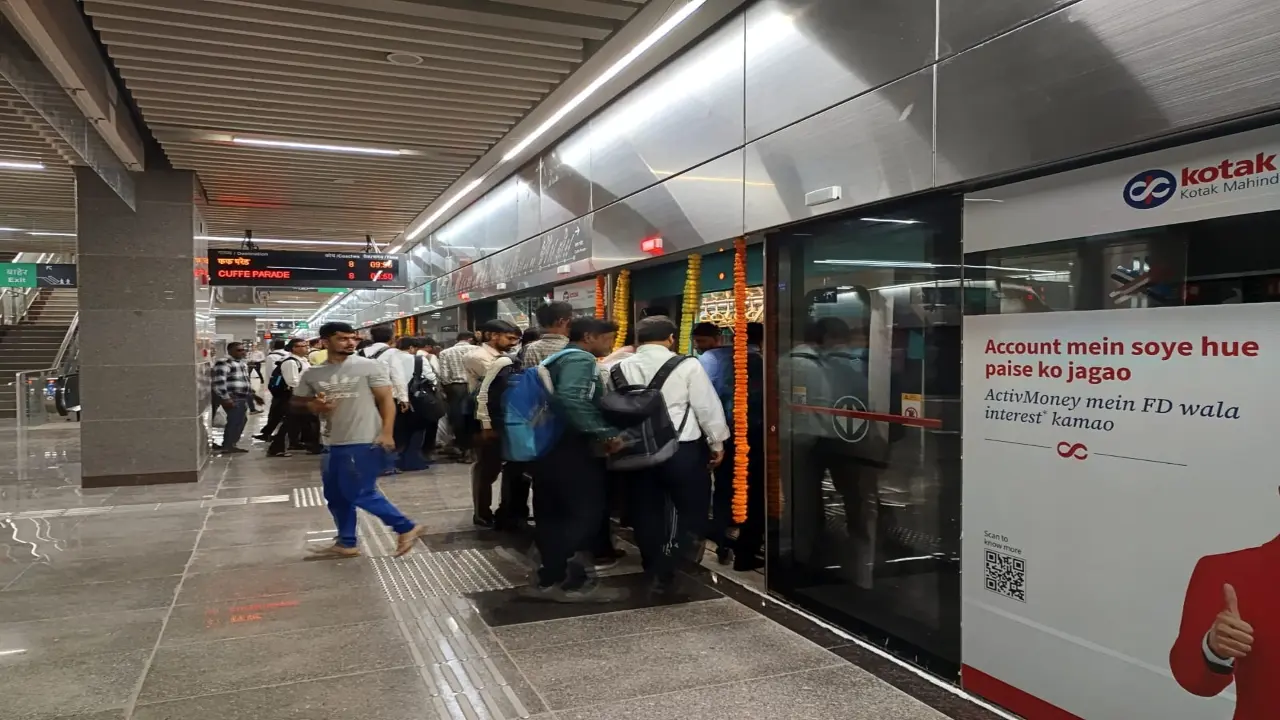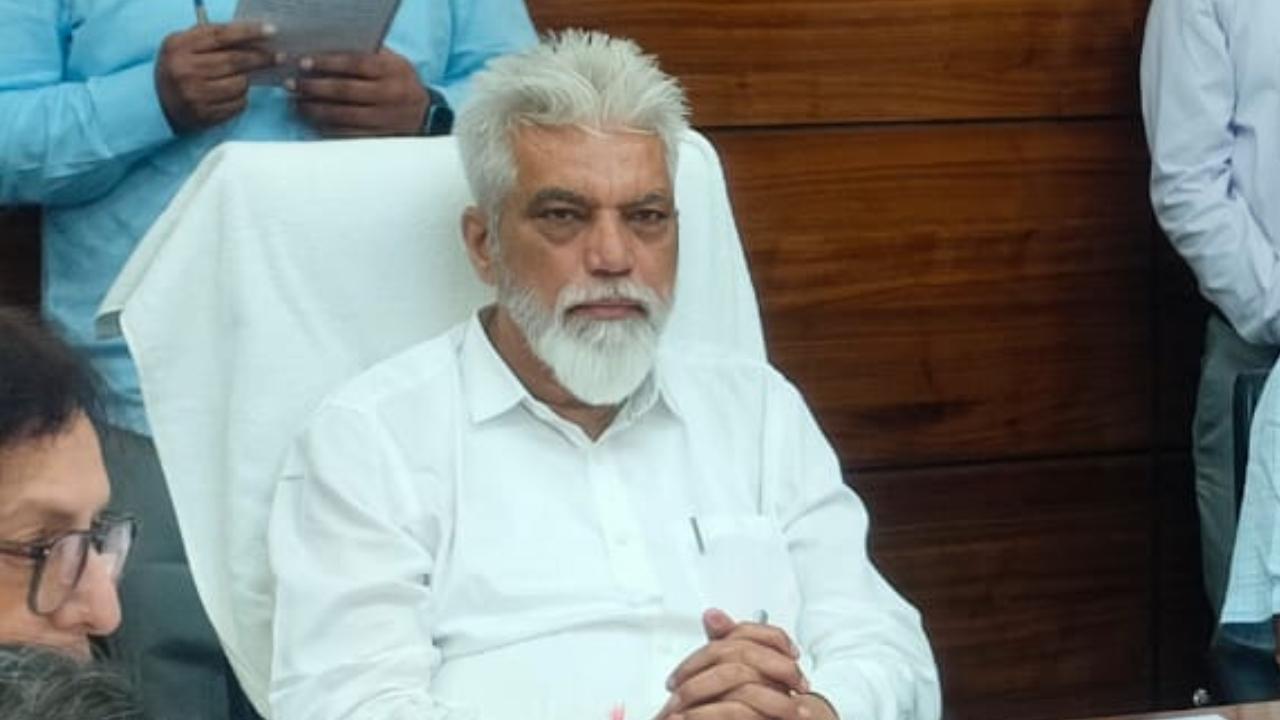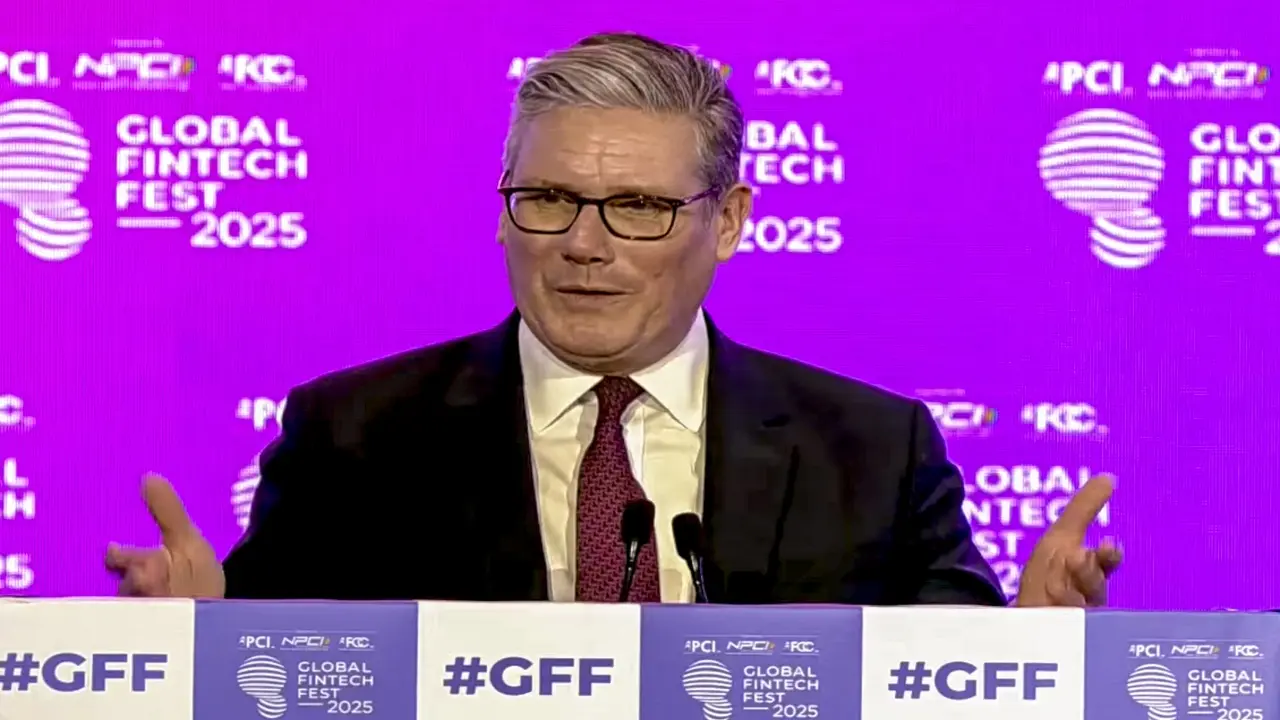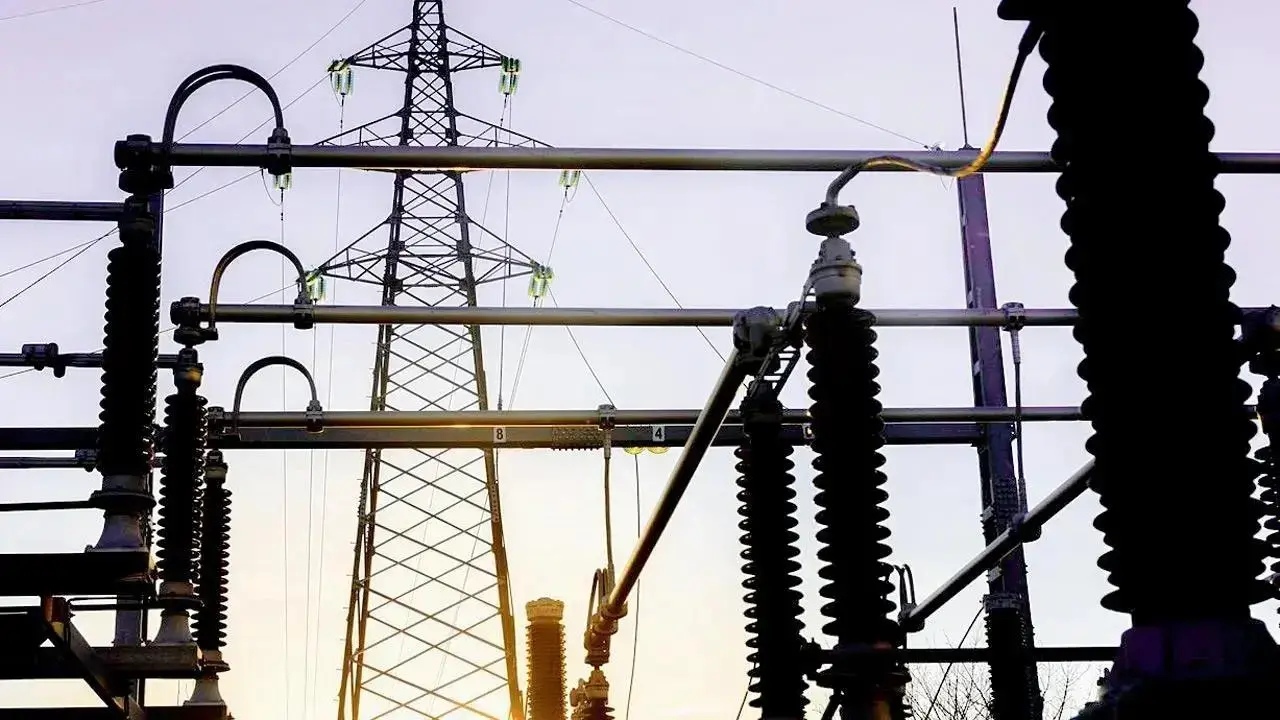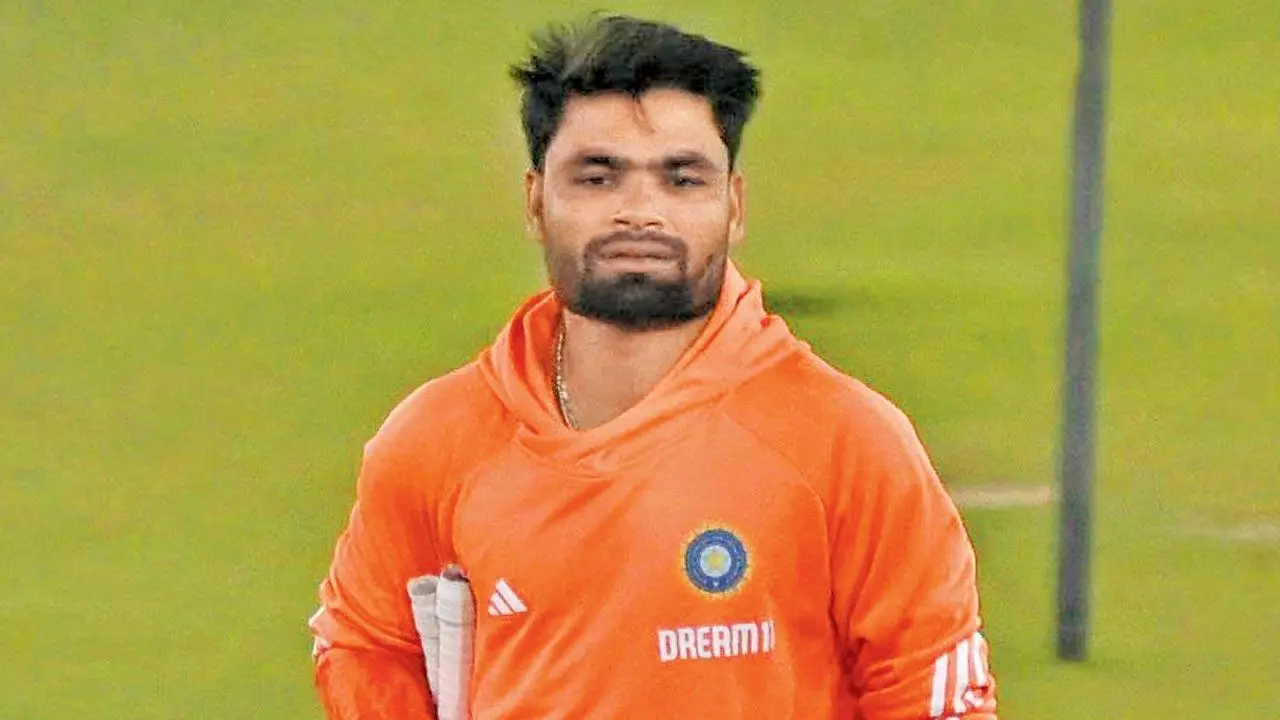The city’s much-awaited Metro Line-3 (Aqua Line) is now fully operational, marking a historic milestone in Mumbai’s transport evolution — a 33.5-km underground corridor connecting Cuffe Parade in South Mumbai to Aarey in the western suburbs.
With 27 stations (26 underground and one at-grade), the project promises to transform the city’s commute by cutting travel time between the island city and suburbs to just one hour.
The final phase of the corridor — Acharya Atre Chowk in Worli to Cuffe Parade — was inaugurated by Prime Minister Narendra Modi on Wednesday.
The entire Mumbai Metro-3 project, developed at a cost of Rs 37,276-crore, integrates seamlessly with the city’s suburban rail, monorail, and metro networks.
The fares range from Rs 10 to Rs 70.
Here’a complete list of Metro Line-3 (Aqua Line) stations
- Aarey JVLR
- SEEPZ
- MIDC- Andheri
- Marol Naka
- Sahar Road
- Chhatrapati Shivaji Maharaj International Airport (CSMIA)- T2
- Santacruz
- CSMIA-T1
- Bandra Colony
- Bandra-Kurla Complex (BKC)
- Dharavi
- Shitala Devi Temple
- Dadar
- Shree Siddhivinayak Temple
- Worli
- Acharya Atre Chowk
- Science Centre
- Mahalaxmi
- Jagannath Shankar Sheth (Mumbai Central)
- Grant Road
- Girgaon
- Kalbadevi
- Chhatrapati Shivaji Maharaj Terminus (CSMT)
- Hutatma Chowk
- Churchgate
- Mantralaya
- Cuffe Parade
Until 7 pm on Thursday, 1,18,286 passengers had travelled by the Aqua Line, Mumbai Metro Rail Corporation (MMRC) stated.
The services on the line will continue to operate until 10.30 pm, it further said.
Connectivity and benefits
Metro-3 connects six major business and employment hubs—Nariman Point, Fort, Lower Parel, BKC, SEEPZ, and MIDC—offering seamless links to 30 educational institutes, 13 hospitals, and 30 recreational facilities.
It is expected to reduce suburban rail load by 15 per cent, cut 6.65 lakh daily vehicle trips, and save 3.54 lakh litres of fuel daily, significantly curbing noise and air pollution.
The fully air-conditioned, barrier-free stations are equipped with Platform Screen Doors, and the line supports National Common Mobility Card (NCMC) for seamless travel.
MMRCL has also implemented green initiatives, including planting over 23,000 trees, mangrove restoration, and rehabilitation of nearly 2,000 families affected by the project.
With advanced tunnelling, driverless train technology, and multimodal integration, Metro-3 stands as India’s most complex urban infrastructure project, redefining how Mumbai moves.

